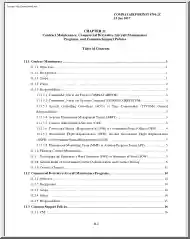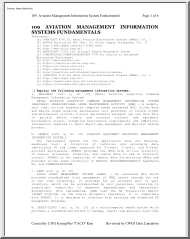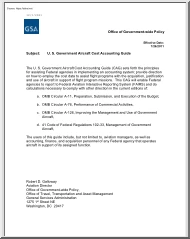No comments yet. You can be the first!
What did others read after this?
Content extract
Source: http://www.doksinet Veteran Entrepreneurship Fact Sheet Trends in Veteran Entrepreneurship 49.7% of World War II veterans owned and operated a business after leaving military service, and 40.1% of Korean War veterans became entrepreneurs1 4.5% of post-9/11 veterans have started their own business2 Veterans made up 12.3% of new entrepreneurs in 1996 but only 56% of new entrepreneurs by 20143 Young veterans are significantly less likely to become entrepreneurs than veterans from previous generations: In 2007, 75.1% of veteran business owners were age 55 and over and only 2.8% of veteran business owners were under the age of 35, compared to 12.7% of all entrepreneurs4 About 22-25% of veterans are interested in starting a business5 Veterans are 1.2 times more likely to be self-employed than non-veterans, but 88% of self-employed veterans are 46 or older.6 1 Institute for Veterans and Military Families (IVMF), “Introduction to Business Ownership for Veterans and Military
Service Members,” 2013, http://vets.syredu/wp-content/uploads/2013/06/IVMF-Intro-to-BusinessTextbook-Electronic-Versionpdf, p 18 2 U.S Bureau of Labor Statistics, “Self-employment In The United States,” March 2016, http://www.blsgov/spotlight/2016/self-employment-in-the-united-states/pdf/self-employment-in-the-unitedstatespdf, p 10 3 Ewing Marion Kauffman Foundation, “The Kauffman Index,” 2015, http://www.kauffmanorg/~/media/kauffman org/research%20reports%20and%20covers/2015/05/kauffman index startup activity national trends 2015.pdf, p 16 4 Office of Advocacy, Small Business Administration (SBA), “Veteran-owned Businesses and their Owners Data from the Census Bureau’s Survey of Business Owners,” March 2012, https://www.sbagov/sites/default/files/393totpdf, p 54 5 Waldman Associates, “Entrepreneurship and Business Ownership in the Veteran Population,” 2004, http://archive.sbagov/advo/research/rs242totpdf, in SBA, p 5; Bunker Labs, “Survey of Chicago Area
Veterans Leadership Council Members,” 2014. 6 Institute for Veterans and Military Families (IVMF), “The State of Veteran Entrepreneurship Research: What We Know and Next Steps,” November 2016, https://ivmf.syracuseedu/wpcontent/uploads/2016/11/ENTREPRENEUR JPMC PAPERPAGES112116 LRpdf, p 5-6 Source: http://www.doksinet Women veterans are 0.7 times less likely to be self-employed than women nonveterans7 African American and American Indian veterans are more likely to be selfemployed than their counterparts (1.2 times and 14 times respectively), but Asian, Pacific Islander, and Hispanic veterans are less likely to be self-employed (approximately 0.9 times less likely for all three categories)8 Since 2007, business-ownership has increased: • 295% for women veterans • 50% for minority veterans • 56% for Hispanic veterans9 Impact of Veteran-Owned Businesses In 2012, veterans owned 2.5 million businesses in the US*. These businesses: • Represented 9% of all U.S businesses •
Generated $1.1 trillion in receipts • Employed 5.5 million people • Had an annual payroll of $195 billion10 *If business where veterans are half-owners are included, this number increases to 3.1 million businesses11 Veterans are 30% more likely to employ other veterans12 Households with veterans who owned businesses have higher income and wealth than those with veterans not owning businesses.13 Skills and Training of Veteran Entrepreneurs In a study from the SBA’s Office of Advocacy: • More than 1/3 of veteran entrepreneurs said they had gained skills from their active duty service that were directly relevant to business ownership 7 IVMF November 2016 p. 10 IVMF November 2016, p. 11 9 Institute for Veterans and Military Families (IVMF), “Center of Excellence for Veteran Entrepreneurship: Veteran Entrepreneurship Facts and Resources,” March 2016, http://veteranentrepreneurship.org/wpcontent/uploads/2016/03/CoE Infographicpdf, p 1 10 IVMF March 2016, p. 1 11 IVMF November
2016, p. 3 12 Franchise Business Review for the International Franchise Association, “Veterans in Franchising: A Progress Report,” 2014, http://emarket.franchiseorg/VetFranStudy2014pdf, p 1 13 IVMF March 2016, p. 1 8 Source: http://www.doksinet • 36.4% of new veteran entrepreneurs indicated that they made use of one or more technologies while on active duty service that were of “direct relevance to the operation” of their new business • 32% of new veteran entrepreneurs had classes while on active duty that would be “of direct relevance to the operation” of their new business enterprise or self-employment activity • 52% of service-disabled veterans reported benefitting from technological training during active duty that was later of use in their business14 14 IVMF 2013, p. 18-19
Service Members,” 2013, http://vets.syredu/wp-content/uploads/2013/06/IVMF-Intro-to-BusinessTextbook-Electronic-Versionpdf, p 18 2 U.S Bureau of Labor Statistics, “Self-employment In The United States,” March 2016, http://www.blsgov/spotlight/2016/self-employment-in-the-united-states/pdf/self-employment-in-the-unitedstatespdf, p 10 3 Ewing Marion Kauffman Foundation, “The Kauffman Index,” 2015, http://www.kauffmanorg/~/media/kauffman org/research%20reports%20and%20covers/2015/05/kauffman index startup activity national trends 2015.pdf, p 16 4 Office of Advocacy, Small Business Administration (SBA), “Veteran-owned Businesses and their Owners Data from the Census Bureau’s Survey of Business Owners,” March 2012, https://www.sbagov/sites/default/files/393totpdf, p 54 5 Waldman Associates, “Entrepreneurship and Business Ownership in the Veteran Population,” 2004, http://archive.sbagov/advo/research/rs242totpdf, in SBA, p 5; Bunker Labs, “Survey of Chicago Area
Veterans Leadership Council Members,” 2014. 6 Institute for Veterans and Military Families (IVMF), “The State of Veteran Entrepreneurship Research: What We Know and Next Steps,” November 2016, https://ivmf.syracuseedu/wpcontent/uploads/2016/11/ENTREPRENEUR JPMC PAPERPAGES112116 LRpdf, p 5-6 Source: http://www.doksinet Women veterans are 0.7 times less likely to be self-employed than women nonveterans7 African American and American Indian veterans are more likely to be selfemployed than their counterparts (1.2 times and 14 times respectively), but Asian, Pacific Islander, and Hispanic veterans are less likely to be self-employed (approximately 0.9 times less likely for all three categories)8 Since 2007, business-ownership has increased: • 295% for women veterans • 50% for minority veterans • 56% for Hispanic veterans9 Impact of Veteran-Owned Businesses In 2012, veterans owned 2.5 million businesses in the US*. These businesses: • Represented 9% of all U.S businesses •
Generated $1.1 trillion in receipts • Employed 5.5 million people • Had an annual payroll of $195 billion10 *If business where veterans are half-owners are included, this number increases to 3.1 million businesses11 Veterans are 30% more likely to employ other veterans12 Households with veterans who owned businesses have higher income and wealth than those with veterans not owning businesses.13 Skills and Training of Veteran Entrepreneurs In a study from the SBA’s Office of Advocacy: • More than 1/3 of veteran entrepreneurs said they had gained skills from their active duty service that were directly relevant to business ownership 7 IVMF November 2016 p. 10 IVMF November 2016, p. 11 9 Institute for Veterans and Military Families (IVMF), “Center of Excellence for Veteran Entrepreneurship: Veteran Entrepreneurship Facts and Resources,” March 2016, http://veteranentrepreneurship.org/wpcontent/uploads/2016/03/CoE Infographicpdf, p 1 10 IVMF March 2016, p. 1 11 IVMF November
2016, p. 3 12 Franchise Business Review for the International Franchise Association, “Veterans in Franchising: A Progress Report,” 2014, http://emarket.franchiseorg/VetFranStudy2014pdf, p 1 13 IVMF March 2016, p. 1 8 Source: http://www.doksinet • 36.4% of new veteran entrepreneurs indicated that they made use of one or more technologies while on active duty service that were of “direct relevance to the operation” of their new business • 32% of new veteran entrepreneurs had classes while on active duty that would be “of direct relevance to the operation” of their new business enterprise or self-employment activity • 52% of service-disabled veterans reported benefitting from technological training during active duty that was later of use in their business14 14 IVMF 2013, p. 18-19




